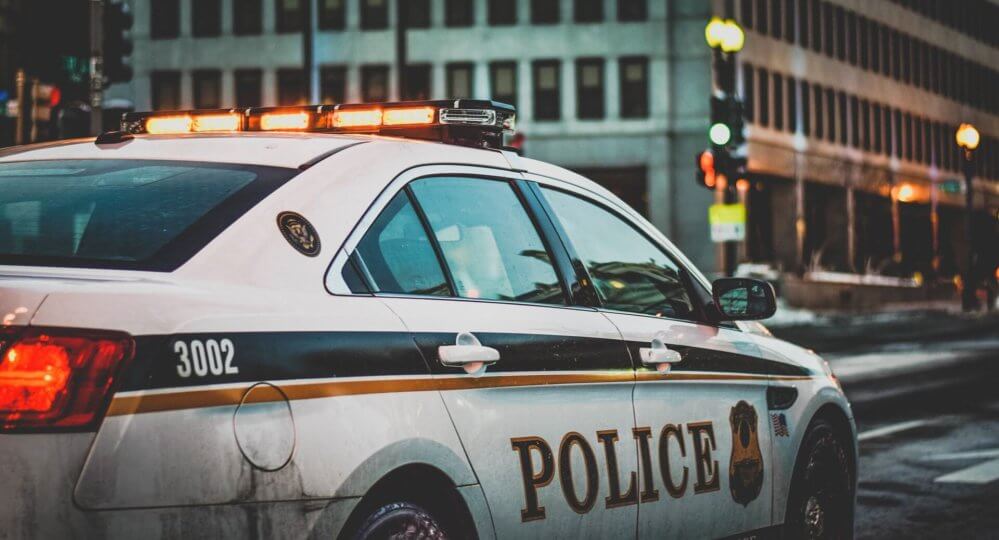
Lawmakers revived the twice-failed bill for a revote Tuesday. Two House members changed their position over the last four days.
RICHMOND-The Virginia Senate will have the final say on qualified immunity. After a two-week period that saw the bill voted down, brought back and then killed again, HB5013 passed the House Tuesday. The vote was 49-45 with two members abstaining.
A few things needed to change to make that happen. If lawmakers vote down a bill, it can only be brought up for a revote by someone who voted no the first time. That’s what happened here. Del. Ibraheem Samirah (D-Fairfax) asked for the revote on Tuesday. Samirah said the bill didn’t have a chance to pass. He also felt it was too watered down. However, Friday’s vote came down to 47-48, with three abstaining. If Samirah voted in favor, the bill would have passed 48-47. He changed gears this week. Taking to Twitter after the vote, Samirah said he didn’t want to stand in the way of the bill passing.
“Although I continue to stand in opposition of the current weakened language of HB5013, the bill to eliminate qualified immunity in Virginia, I would not let my current opposition to the language prevent it from passing from the Virginia House to the Senate,” Samirah said.
Samirah was the second member to change their vote Tuesday. Kaye Kory (D-Fairfax County), abstained from the original vote. In a statement Tuesday, Kory said she overcame her concerns.
“Due to the urgent need for police reform in the Commonwealth, I supported today reconsideration of HB5013, addressing qualified immunity, so the General Assembly could continue our work on this avenue for justice during the special session,” Kory said. “Although I had concerns about the bill last Friday, I welcomed the reconsideration as an opportunity to do further work with Delegate Bourne and my House and Senate colleagues.”
What is Qualified Immunity?
Set up by a 1982 Supreme Court case, qualified immunity protects government officials, including law enforcement, from liability if you feel your rights were violated. This doesn’t happen every time. Officers can still face criminal charges and you can file a lawsuit, but there are conditions. In order to file, you first have to prove a court previously ruled that it was “clearly established” the officer’s specific actions were unconstitutional. A judge tosses the case otherwise. The bill eliminates that protection for all law enforcement officers, making it easier to sue. That doesn’t mean someone can file an endless stream of lawsuits, however. The bill also has a clause that limits a person to one lawsuit against police every two years.
Additional changes also came through over the last two weeks. The original bill allowed victims to sue officers and their employers, for off-duty actions. Under the version that passed Tuesday, employers would not be liable for anything law enforcement officials do at off-duty jobs. On-duty liability is a different story, however. Departments are liable for any “tortious or criminal conduct” from their officers while on the job.
Organizations See It As A Problem
Some lawmakers either voted no or abstained due to the expected impact. The attorney general’s office cautioned that when lawsuits come in, it “might need a specialized civil trial unit devoted to these state law enforcement civil cases.” That includes hiring six attorneys, four paralegals and two legal secretaries, along with servers and software support. According to the Department of Planning and Budget, that adds up to $1.485 million annually, with a one-time setup cost of $150,000 for servers and software. The projections also show a $2.6 million increase in Virginia’s VaRisk plan, which provides insurance coverage for law enforcement liability, public officials liability, and medical malpractice to constitutional officers and regional jails. That means “significant annual premium increases on localities and constitutional officers.”
Beyond the cost, some law enforcement agencies feel the bill would make it harder to recruit. Wayne Huggins, executive director for the Virginia State Police Association, said the concept is misunderstood. He testified in August before a joint session of the House Courts of Justice and Public Safety committees.
“As the title suggests, a person must qualify for such immunity by acting reasonably, in accordance with the constitution, applicable laws and department policies,” Huggins said. “This would open the door for countless frivolous lawsuits and would most definitely become yet another impediment to hiring qualified men and women.”
Supporters Argue Qualified Immunity Not Needed
Supporters say the bill would help victims get justice. Speaking on Friday, the bill’s creator, Del. Jeff Bourne (D-Richmond) said the commonwealth needed new rules. He argued the “clearly established” rule put up too high a burden.
“What we’re trying to change is the legal construct which in an overwhelming majority of cases prevents justice for families and victims,” Bourne said. “Really it boils down to are we going to afford Virginians who find themselves on the business end of excessive force the ability to better and more fairly fight for some redress and relief in our state courts?”
The bill now goes to the Virginia Senate, where discussion starts later this week.
Politics

Biden administration bans noncompete clauses for workers
The Federal Trade Commission (FTC) voted on Tuesday to ban noncompete agreements—those pesky clauses that employers often force their workers to...

Democratic shakeup in Virginia primaries for governor, lieutenant governor
Richmond Mayor Levar Stoney quit his bid for governor and jumped into the race to be the Democratic nominee for lieutenant governor. The race for...
Local News

The zodiac signs of 12 iconic women offer insight into their historic accomplishments
Zodiac signs can tell you a lot about someone’s personality. Whether they’re an earth, water, air, or fire sign, these 12 categories (which are...

Virginia verses: Celebrating 5 poetic icons for National Poetry Month
There’s no shortage of great writers when it comes to our commonwealth. From the haunting verses of Edgar Allan Poe, who found solace in Richmond's...




